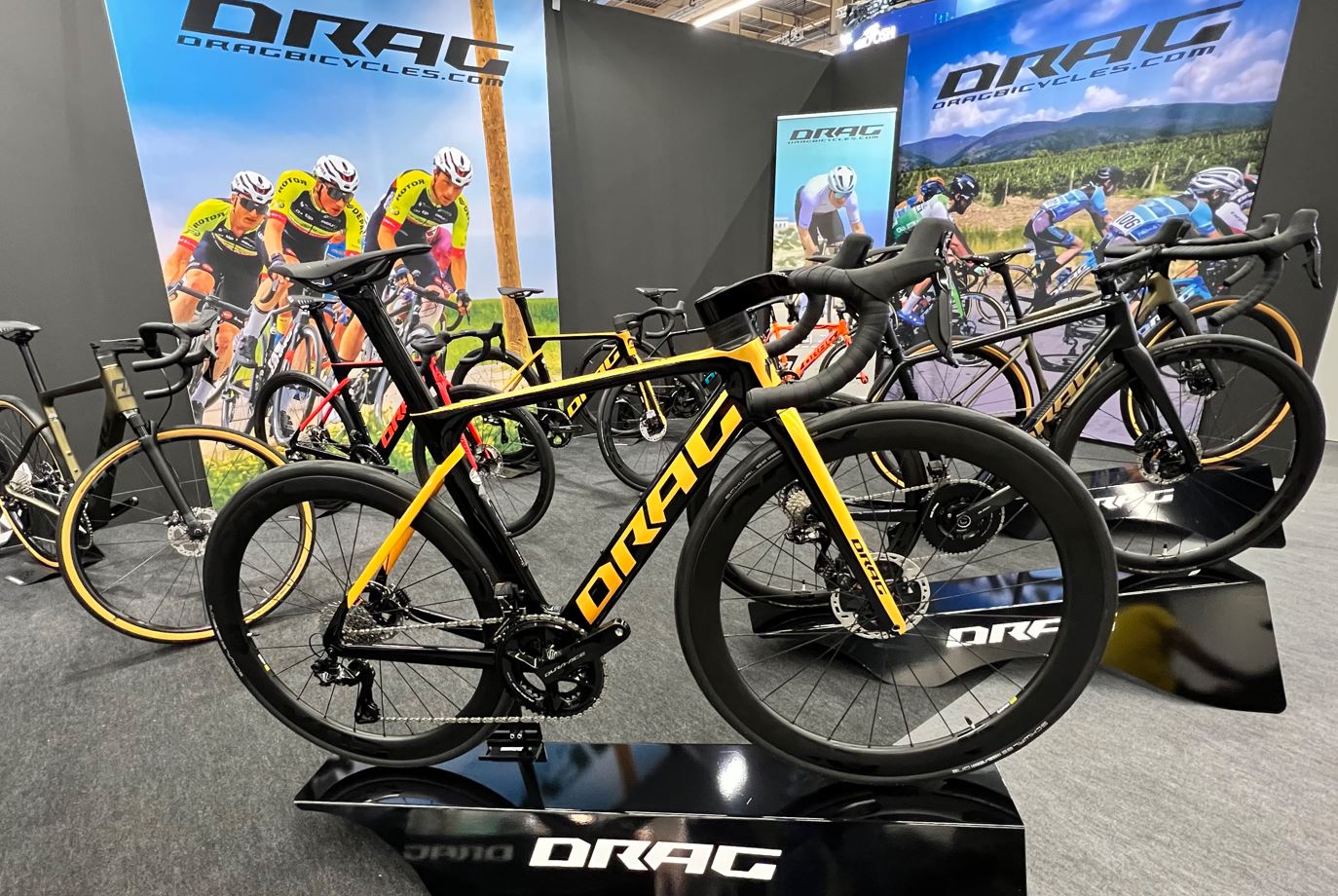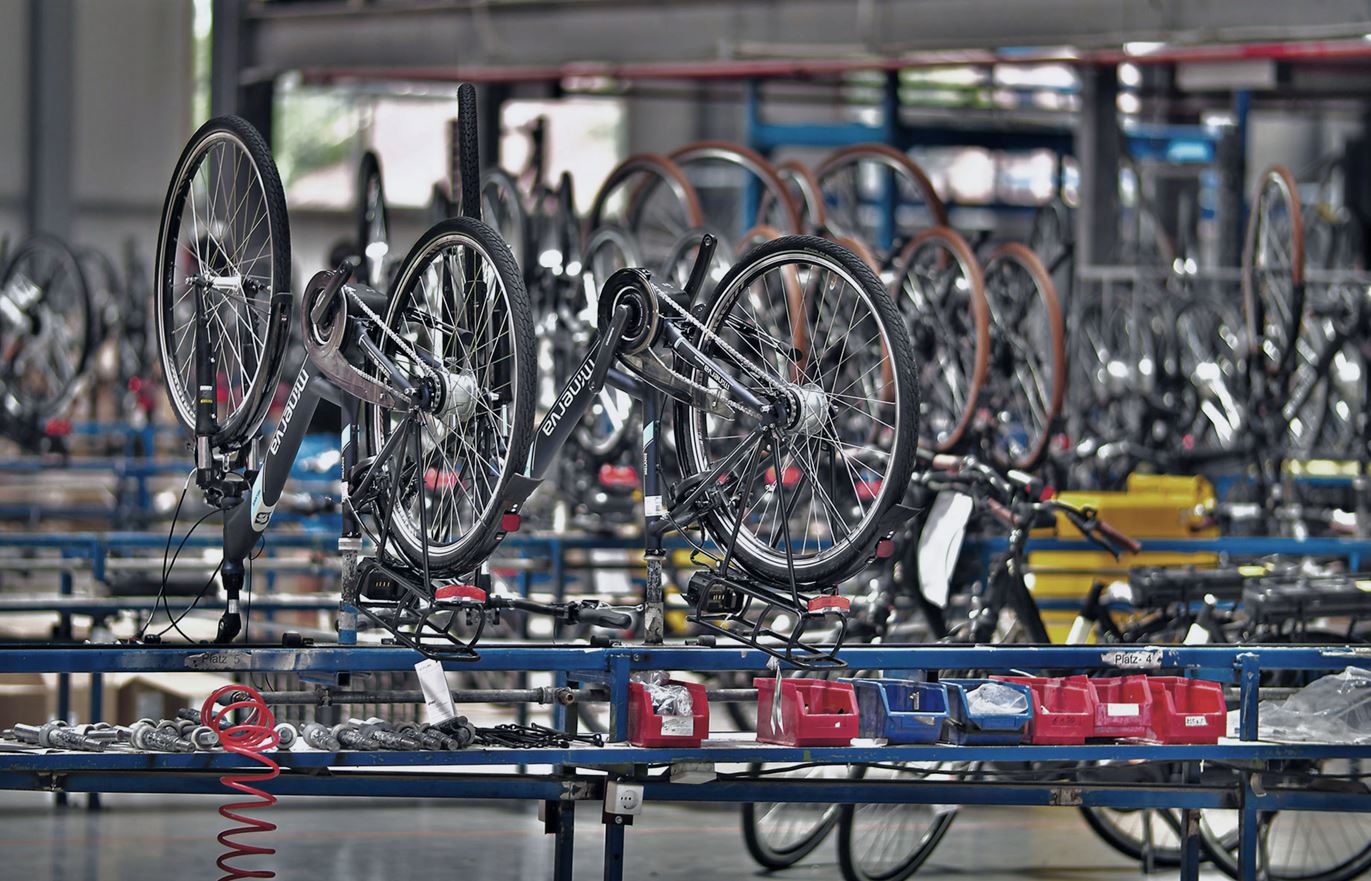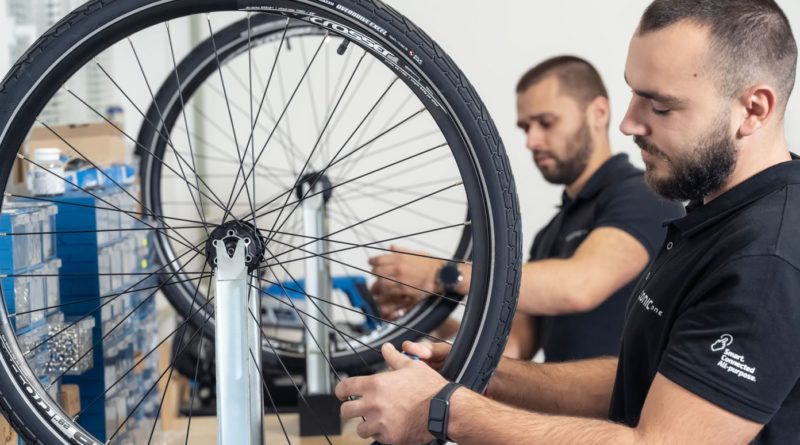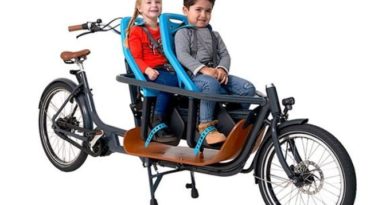How Bulgaria is becoming crucial to Europe’s supply of bike goods
In recent years, Bulgaria has become one of the most important bicycle exporters in Europe. An on-site survey shows that this could be just the beginning of a long-term bicycle boom in the Balkans. Werner Müller-Schell investigates…
 When one of the country’s highest politicians comes in person to sign a contract between two companies, it is a powerful statement. When the Bulgarian company Maxcom Ltd and the Austrian company PIERER New Mobility GmbH announced an agreement on the joint production of eBikes in the southern Bulgarian city of Plovdiv on 21 July last year, that was exactly the case. Kiril Petkov, the then Minister of Economy and later Prime Minister of Bulgaria, took part in the event. An appearance that the government representative had every reason to make: Maxcom and PIERER New Mobility GmbH want to invest an impressive 40 million euros in the location. The goal is to build a state-of-the-art production facility for electric bicycles in Plovdiv. Up to 350,000 pedelecs are to roll off the production line every year after completion in late summer 2023.
When one of the country’s highest politicians comes in person to sign a contract between two companies, it is a powerful statement. When the Bulgarian company Maxcom Ltd and the Austrian company PIERER New Mobility GmbH announced an agreement on the joint production of eBikes in the southern Bulgarian city of Plovdiv on 21 July last year, that was exactly the case. Kiril Petkov, the then Minister of Economy and later Prime Minister of Bulgaria, took part in the event. An appearance that the government representative had every reason to make: Maxcom and PIERER New Mobility GmbH want to invest an impressive 40 million euros in the location. The goal is to build a state-of-the-art production facility for electric bicycles in Plovdiv. Up to 350,000 pedelecs are to roll off the production line every year after completion in late summer 2023.
“This investment is unique for Bulgaria and will lead to the creation of up to 1,000 new jobs in the Plovdiv region. It is also the next step for Bulgaria to become the largest eBike production country in Europe,” Petkov explained. Looking at the recent development of the Bulgarian bicycle industry, it quickly becomes clear that the politician’s speech was anything but empty words.
While countries like China, Taiwan or other Asian states are usually in the focus when listing the most important bicycle producers in the world, an industrial cluster has formed in Bulgaria in recent years that could even compete with Europe’s number one, Portugal, in the near future. According to an analysis by the Bulgarian Chamber of Commerce, eBike exports from the Balkans increased eight-fold between 2017 and 2020.
In terms of trade volume, eBikes are now among the country’s ten most valuable exports. In Europe, Bulgaria already ranks fifth with almost one million exported bikes. A look at German bicycle imports also shows how strong the Bulgarian bicycle industry already is; with an impressive 219,000 eBikes and a share of around 17 percent of total eBike imports into the Federal Republic, Bulgaria was the main supplier country for electric bicycles in 2021, followed by the Netherlands (187,000 units) and Vietnam (166,000), according to market data from the German bicycle industry association ZIV. The Balkan state is also one of the most important partners for normal bicycles in the German cycling landscape and ranks fifth here behind Cambodia, Bangladesh, Poland and Austria.
The Cycling City of Plovdiv
The Bulgarian bicycle boom – if you follow in the footsteps of this development, the journey quickly leads to Plovdiv, the place where the new joint venture of Maxcom and PIERER New Mobility GmbH has its home. Almost 350,000 people live in the city, which was built on seven hills and whose settlement history is almost 7,000 years old. After the fall of the Iron Curtain in 1989 and the accompanying economic boom in Eastern Europe, Plovdiv developed into a centre of local bicycle production.
Maxcom, the largest bicycle producer in the country and thus also one of the largest in Europe, was founded in Plovdiv in 1996. The company’s factory, located on the northern outskirts of the city, covers an area of more than 40,000 square metres and has the capacity to produce more than 400,000 bicycles annually.
“The decision to choose Maxcom as a partner was made for a good reason: we currently already assemble at Maxcom in Bulgaria, although Maxcom also has other customers. Now, when we start a business in a new location, we often choose to work with renowned market players. The long-standing strategic partnership with BAJAJ in India or the joint venture with CFMOTO in China for Pierer Mobility’s motorbike business are two excellent examples,” explains Florian Burguet, Managing Director at PIERER New Mobility GmbH.
The new factory of the joint venture between the two companies, which is currently under construction, will be located in the “Trakia Economic Zone” on the south-eastern outskirts of the city. With an area of 10,700,000 square metres and investments worth over two billion euros, the economic zone is the largest industrial project in Eastern Europe. In Bulgaria, there are many such attempts to boost the economy. They are initiatives that do not come out of the blue; with a gross domestic product of 9,850 euros per capita, the country currently brings up the rear within the European Union.
 The bicycle industry is supposed to help with this. Another big player in the production location Plovdiv is the Bulgarian company Leader96 (as seen right). Started in 1996 as a wholesale company, it established its first own bicycle factory in 2001. Today’s factory is located in the suburb of Rogosh and has about 40,000 square metres of space. With nine production lines, the factory has a capacity of 250,000 eBikes per year, and the building also includes a paint shop, an area for wheel production and an in-house bicycle testing laboratory.
The bicycle industry is supposed to help with this. Another big player in the production location Plovdiv is the Bulgarian company Leader96 (as seen right). Started in 1996 as a wholesale company, it established its first own bicycle factory in 2001. Today’s factory is located in the suburb of Rogosh and has about 40,000 square metres of space. With nine production lines, the factory has a capacity of 250,000 eBikes per year, and the building also includes a paint shop, an area for wheel production and an in-house bicycle testing laboratory.
“About 99 per cent of our production is exported to other European countries – to Belgium, Germany, the Netherlands, Italy, Sweden and other countries,” Marketing Manager Dora Andreeva tells us. “For extremely large projects, Asia is still a popular production location. But for medium-sized projects, Eastern Europe has an advantage. The time and cost of travel is much less, monitoring and control is less tense and easier, transport to the target countries is faster and cheaper,” she continues.
She explains that Bulgaria in particular is one of the strongest Eastern European countries in terms of bicycle production with the country’s history: There is a long tradition in the field of technical professions throughout the country. “This already starts with training in specific technical schools. In Plovdiv alone there are three vocational schools that train technicians, electricians and motor vehicle specialists,” says Andreeva.
A young bicycle industry
It is a technical background that, however, only extended to bicycle production after the fall of the Iron Curtain. For although Bulgaria has a very old professional bicycle race, the Tour of Bulgaria, which was first held in 1924, bicycle production was mainly state-controlled until 1990. For example, Balkan Velo, which is still active today, was originally founded in 1941 as an aircraft manufacturer before switching to bicycle production in 1957. In the 1960s, the company then began producing the so-called “Balkan Velo”, which with its bonanza look quickly became a symbol of the socialist era and a dream gift for Bulgarian children. Even today, the manufacturer based in Lovech, about 150 kilometres north of Plovdiv, still produces replica versions of these bikes. City bikes, mountain bikes and children’s bikes are also produced on a production area of around 100,000 square metres. As with Leader96, the majority of these are destined for export. With Reactor, however, the company also operates its own brand, which is mainly active on the domestic market.
“For a long time, there were mainly folding bikes and old city bikes in Bulgaria – everything else was difficult to get hold of,” recalls Dragomir Kouzov. The 61-year-old is one of the best known personalities of the Bulgarian cycling scene. As a teenager he was a road racer in the Soviet Union, and in 1998 he finally started building bicycles himself in a small workshop in the capital Sofia. Today, he is not only the owner of the Bulgarian forge Drag Bicycles, but also one of the driving forces in numerous bicycle and mobility initiatives in the country – both in the sporting and industrial sectors. “I built my first bikes in my parents’ garage and flat. But after a few years, everything happened very quickly: the technical infrastructure on site with the factories was there – accordingly, we didn’t start from scratch,” he explains.
Few own bicycle brands
 Today, Drag Bicycles with its approximately 100 employees is not only one of the leading bicycle companies in Bulgaria, but also one of the few companies that puts its own brand in the foreground. According to their own information, they cover an impressive 40 percent of the local market for bicycles in the medium to upper price range, and their product range includes all types of bicycles.
Today, Drag Bicycles with its approximately 100 employees is not only one of the leading bicycle companies in Bulgaria, but also one of the few companies that puts its own brand in the foreground. According to their own information, they cover an impressive 40 percent of the local market for bicycles in the medium to upper price range, and their product range includes all types of bicycles.
“There are a total of 60 models – from racing bikes to mountain bikes to children’s bikes,” says Kouzov, who also proudly points out the international commitment of his company: among others, the Austrian professional cycling team Team Vorarlberg rides with the Bulgarian brand’s racing bikes, and the company is now also a regular exhibitor at the Eurobike trade fair.
The fact that Bulgaria has developed into one of the largest bicycle exporters is not only reflected in the international commitment, but also in the sales statistics of Drag Bicycles: “Almost 60 percent of our products are exported to the EU and third countries. Austria, Germany, Italy, Ireland, the Benelux countries and the Baltic states are our main customers,” says Kouzov.
Another Bulgarian brand that has since gained international recognition is Econic One, a manufacturer of electric bicycles. The founder, Galin Bonev, began to look more intensively at the topic of mobility in 2010. The first prototypes turned into modern eBikes, and in 2020 a state-of-the-art factory was finally built in the port city of Varna. Today, the Econic One pedelecs are sold in 22 countries worldwide.
“All our bikes are designed and assembled in Bulgaria. We have our own factory on the Black Sea and also work with other local factories to cope with the high demand. In addition, we have offices in Varna, Sofia, in Germany and the USA,” says Bonev, who sees the pandemic in particular as a driver for the Bulgarian bicycle industry: “In recent years we have seen a boom in bicycle production in the country. In fact, the bicycle industry was one of the few industries here that did not suffer from the pandemic. A company like Econic One benefits enormously from being located in Bulgaria. It has access to modern production facilities, extraordinary technical know-how and is located in the European Union.”
 From bikes to clothing
From bikes to clothing
It is not only bicycle production that is soaring in Bulgaria; the production of bicycle-related products such as clothing is also benefiting from the Bulgarian bicycle boom. Tryavna is located about 200 kilometres east of the capital Sofia and 150 kilometres northeast of Plovdiv. Just 10,000 people live in this town, which is mainly known as a tourist destination, and which is famous for its location in the midst of the Balkan mountains and for its houses that are reminiscent of the half timbered style.
In a light-flooded factory hall on the outskirts of the town, sewing machines are whirring; around 100 seamstresses and seamstresses ensure that prefabricated fabric parts are turned into bicycle shorts, cycling jackets and other products. “Tryavna was once the centre of the Bulgarian textile industry. But with the migration of textile production to Asia in the second half of the 20th century, many companies had to close down. In the meantime, however, things are happening here again,” says Otto Leodolter, managing director of the Austrian clothing manufacturer Löffler. The company from Ried im Innkreis only opened its own factory in Tryavna in October 2021. The brand-new building shines in red, reviving a tradition that has almost been forgotten: the production of textiles in Europe.
Löffler has invested a lot on site. While other factory buildings in the industrial area of the small town with their broken windows and crumbling walls are only a dark reminder from the outside of the textile production that once flourished here, the Löffler factory was built according to the most modern standards. There is good air conditioning for the hot Bulgarian summer as well as a large cafeteria for the employees. During the lunch break, people sit together on beer benches in front of the factory. Leodolter himself comes here once a month to look after things.
The reason for the choice of location in Bulgaria, he explains, is the proximity to Austria. “Regional production and added value are a valuable asset that we want to preserve and carefully develop further,” says Leodolter.
In the future, the investments in Bulgaria are to be intensified even further, the managing director explains. For example, a photovoltaic system is to be installed. The plant in Tryavna is also to grow to 150 seamstresses to meet the high demand for Löffler products. In addition, they are even considering opening another site in Bulgaria, after all, there is only a limited number of workers in Tryavna despite relatively attractive working conditions. For Löffler, this is the only feasible way, says Leodolter. “We are an Austrian company that produces for Europeans in Europe. And we want to maintain that in the future.“
Location with a future
From clothing to classic bicycles to eBikes the fact that the Bulgarian bicycle industry has developed so strongly in recent times is due to several factors. On the one hand, it is benefiting from the rapidly growing global demand for electric bicycles. On the other hand, the upswing is also due to the continuing tense situation around the global supply chains.
 “The challenges in production here are basically the same as in the other countries. However, when it comes to the global supply chain crisis, Bulgaria has the advantage of having several local parts production facilities. Accordingly, there is a network that helps each other to overcome the challenges,” says Econic One founder Galin Bonev. “The advantages of manufacturing in Bulgaria are the modern production facilities as well as the talented skilled labour,” he adds. “In addition, the country has a good economic environment and the state institutions are helpful. We are constantly working to improve in order to achieve higher quality, shorter delivery times and greater product capacity,” says Bonev. In addition to the above-mentioned framework conditions, the EU’s anti-dumping measures against imports from China are also a factor supporting the Eastern European production location.
“The challenges in production here are basically the same as in the other countries. However, when it comes to the global supply chain crisis, Bulgaria has the advantage of having several local parts production facilities. Accordingly, there is a network that helps each other to overcome the challenges,” says Econic One founder Galin Bonev. “The advantages of manufacturing in Bulgaria are the modern production facilities as well as the talented skilled labour,” he adds. “In addition, the country has a good economic environment and the state institutions are helpful. We are constantly working to improve in order to achieve higher quality, shorter delivery times and greater product capacity,” says Bonev. In addition to the above-mentioned framework conditions, the EU’s anti-dumping measures against imports from China are also a factor supporting the Eastern European production location.
However, the most important reason for the bike boom in the Balkans is the many investments in new production facilities that have been made in recent years – and which are also planned for the coming years. In reference to the Portuguese bicycle industry, many industry experts are already talking about the second European “Bicycle Valley” when it comes to the Bulgarian bicycle industry.
It is a development that is more than just impressive, especially at the Plovdiv location. Just recently, the company Leader96 announced that it would invest 25 million euros in a new factory in the Kuklen industrial zone. On the site, which is located a few kilometres south of Plovdiv, exclusively eBikes are to be produced from next spring onwards, up to 300,000 units per year. In addition, 330 new jobs will be created. Similar to the announcement of the joint venture between Maxcom and Pierer Mobility, an important politician was also on site to acknowledge the announcement accordingly. Alexander Pulev, Minister of Innovation and Growth, personally presented Leader96 CEO Dimitar Zlatanov with a certificate of state support for the project. Big investment in the local bicycle industry – in Bulgaria they are a government matter.
According to the Association of the Bicycle Producers in Bulgaria (ABPB), around 750,000 bicycles and eBikes were exported from Bulgaria in 2020.
Wage comparison
The Austrian company Löffler gave us a rare insight into local wage conditions during our visit to the Löffler textile factory in Tryavna. While a minute’s wage in Bangladesh costs the equivalent of only one euro cent, in Tryavna it is just under 20 cents. For comparison: in Austria it would cost about 50 cents, according to the responsible persons. An employee at Löffler in Bulgaria earns €522.50 gross (1,023 leva, the local currency), plus a Christmas bonus roughly equivalent to a 13th month’s salary. On average, this is 26.7% more than the median income of a Bulgarian household. By comparison, the legal minimum wage in Bulgaria is currently 710 leva (€362). In order to further improve the conditions, the Bulgarian employees are to participate in the company profits in the future and a pension fund is to be set up – as is already done in Austria. However, the legal requirements are still missing.
Association of the bicycle producers in bulgaria (ABPB)
The largest Bulgarian bicycle manufacturers are Maxcom, Leader96, Cross, Balkan Velo, Velomania, Econic One, Cycle Gets and Passati. These manufacturers are organised in the Association of the Bicycle Producers in Bulgaria (ABPB). In 2020, the association recorded a total production of regular bicycles as well as eBikes of slightly more than 750,000. A proud 99% of this production is exported. In addition to the above-mentioned manufacturers, there are several other Bulgarian bicycle makers.
Photo credits: Werner Müller-Schell



